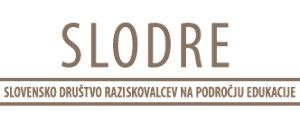Neenakost, revščina in izobraževanje v post-jugoslovanskem prostoru: od nemobilnosti k inkluziji?
V postjugoslovanskem prostoru se o pomenu izobraževanja pri spodbujanju socialne pravičnosti redkeje razpravlja kot o vlogi izobraževanja pri pripravi učencev za tako imenovane “veščine”, ki so potrebne na trgu dela, ali kot o vlogi izobraževanja v službi prenašalca tako imenovanih “nacionalnih-kulturnih vrednot”. V svojem predavanju bo Paul Stubbs, PhD, predstavil zgodovinsko perspektivo in pregled kompleksnega odnosa med izobraževanjem in socialno stratifikacijo v socialistični Jugoslaviji in v postsocialistični tranziciji. Z uporabo empiričnih dokazov iz nedavnih raziskav, ki so jih izvedli avtor in sodelavci znotraj raziskave “Otroška revščina in strategije obvladovanja revščine gospodinjstev na Hrvaškem” ter v okviru dela znotraj zagovorniške pobude “Prihodnost socialne države na Zahodnem Balkanu”, bo predavatelj predstavil pomembnost pravičnosti pri dostopu do izobraževanja v regiji, s posebnim poudarkom na strukturnih neenakostih in stičišču izključitev, ki temeljijo na razredu, spolu, etnični identifikaciji, državljanstvu, invalidnosti, spolnosti in geografski legi. Obravnavane bodo posledice uspešnega zaključka izobraževanja kot sredstva za socialno mobilnost v nekaterih delih regije. Na koncu bo avtor predstavil še problematiko in možnosti boja zontraj regije za pedagogiko, ki jo navdihuje Friere.
Inequality, Poverty and Education in the Post-Yugoslav Space: from immobility to inclusion?
Compared to debates on the role of education in preparing students for so-called ‘skills’ needed in the labour market or, indeed, on education as a transmitter of so-called ‘national-cultural values’, the importance of education in promoting social justice is rarely discussed in the post-Yugoslav space. Adopting a historical perspective, this presentation provides an overview of the complex relationship between education and social stratification both in socialist Yugoslavia and in the post-socialist transition. Using empirical evidence from recent research carried out by the author and others into ‘Child poverty and household coping strategies in Croatia’, as well as work within an advocacy initiative ‘The Future of the welfare state in the Western Balkans’, I will explore the importance of equity in educational access and outcomes across the region, with a particular emphasis on structural inequalities and the intersection of exclusions based on class, gender, ‘ethnicized’ identification, citizenship, disability, sexuality and geographical location. The implications of the effective ending of education as a vehicle for social mobility in parts of the region will be addressed. Finally, the presentation will outline the problems and possibilities in struggling for a Freirian-inspired anti-oppressive pedagogy across the region.
 PEDAGOŠKI INŠTITUT
PEDAGOŠKI INŠTITUT



